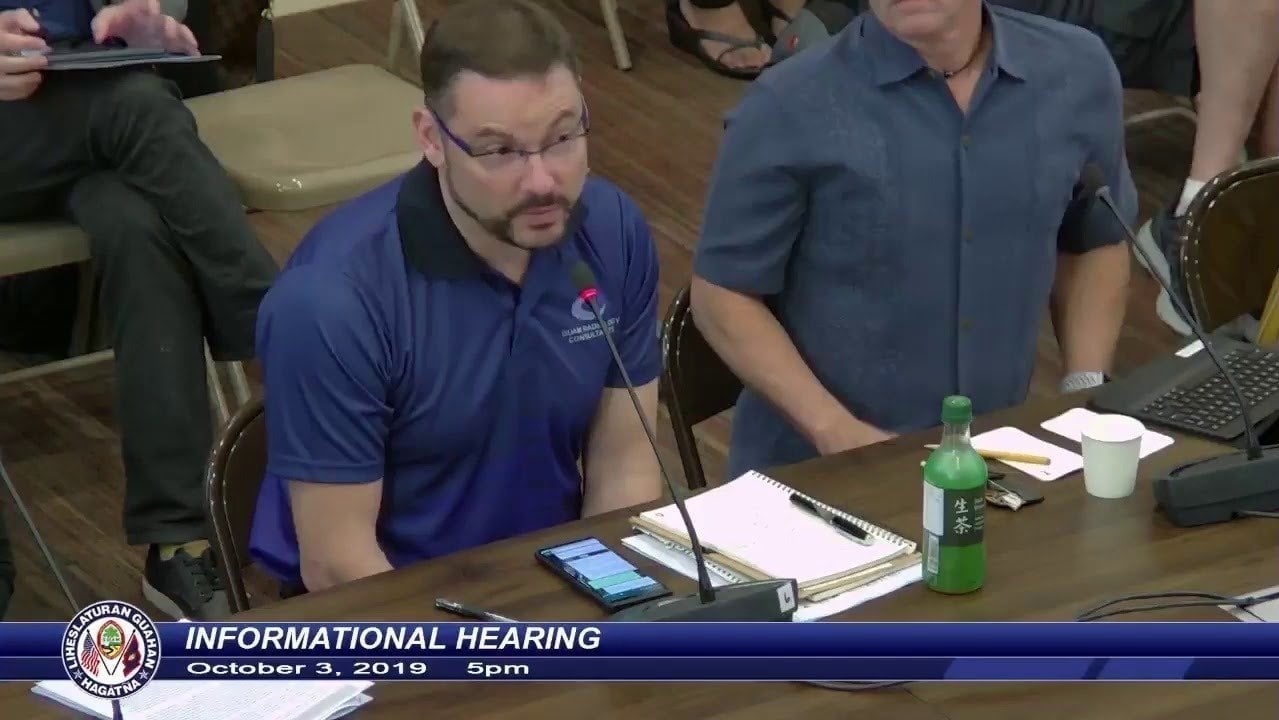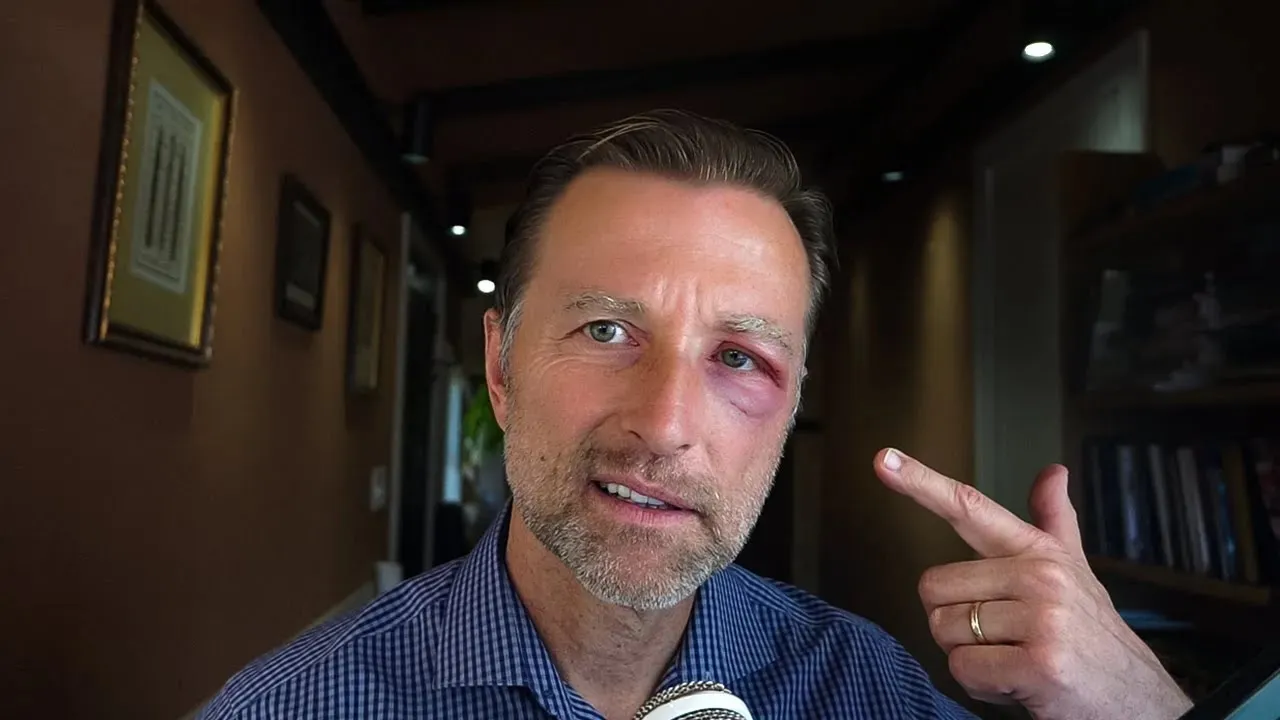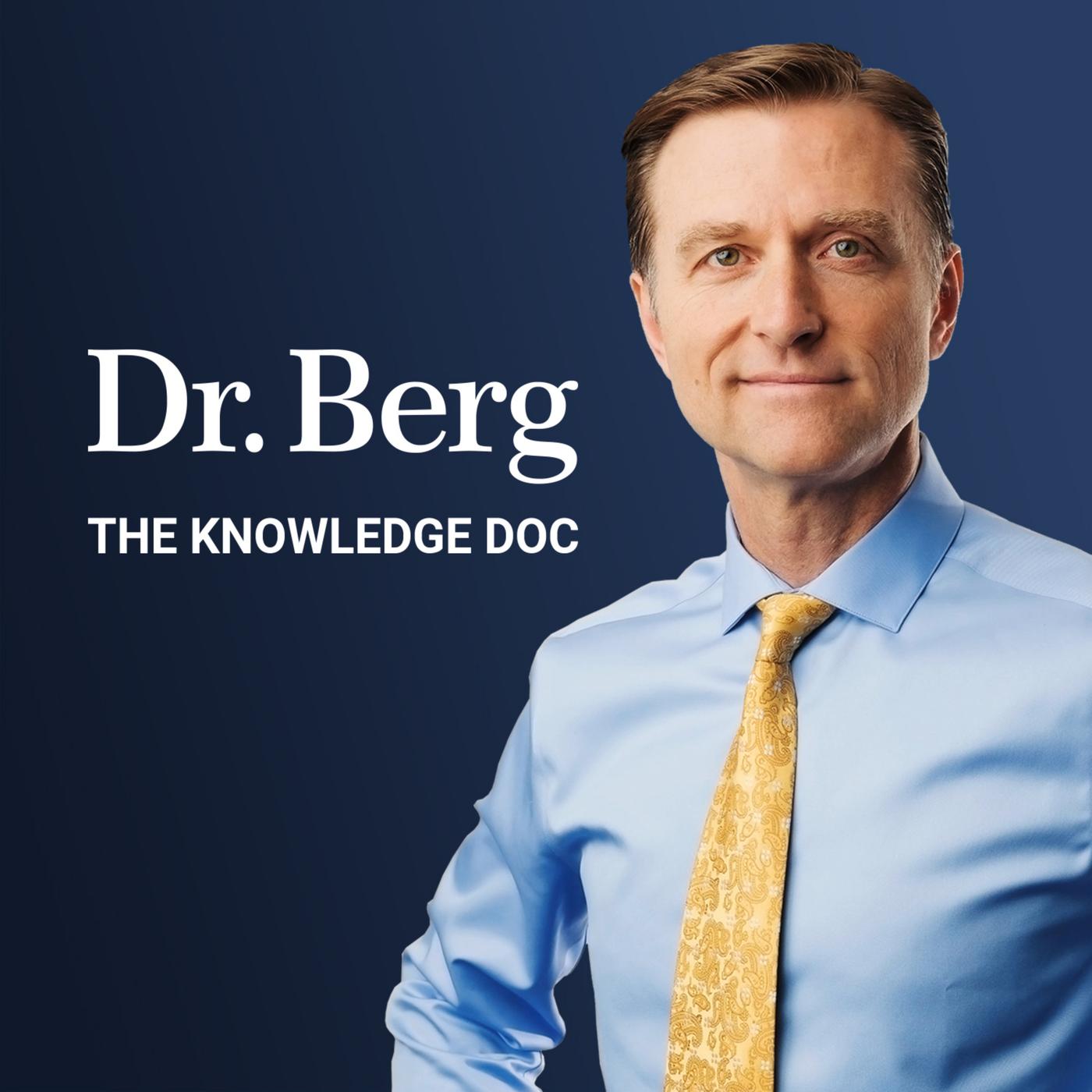Dr. Eric Berg: Lawsuit & Controversy Surrounding Keto Guru EXPOSED!
Do online health gurus always have your best interests at heart? The story surrounding Eric Berg, a chiropractor with a massive YouTube following, raises serious questions about the intersection of alternative medicine, religious beliefs, and consumer trust.
Eric Berg, DC, a chiropractor and prominent figure in the online health and wellness space, boasting over 9 million subscribers on YouTube as of December 2022, finds himself embroiled in multiple controversies. Berg, also identified as an OT 8 Scientologist, first gained online traction on December 19, 2008, with a video focusing on the weight reduction journey of former NFL player Duane Clemons. He is now facing scrutiny from legal and ethical angles.
| Eric Berg: Bio, Career, and Professional Information | |
|---|---|
| Full Name | Eric Berg |
| Profession | Chiropractor, YouTube Personality, Author |
| Education | Doctor of Chiropractic (DC) |
| YouTube Channel | Dr. Eric Berg DC (9.05+ million subscribers as of December 2022) |
| Key Areas of Focus | Ketogenic Diet, Intermittent Fasting, Weight Loss, Health Education |
| Controversies | Lawsuits (employment, product claims), Questionable use of "Dr." designation, Affiliation with Scientology, Criminal Conviction (forgery and identity theft) |
| Companies/Brands | Dr. Berg Nutritionals, Berg Holdings, LLC, The Health & Wellness Center, Inc. |
| Location | Alexandria, Virginia, United States of America (4501 Ford Avenue) |
| Website | DrBerg.com |
This week, [eric berg] was scheduled for a deposition in a lawsuit brought by a former employee. The employee alleges they were pressured to enroll in Scientology courses as a condition of employment. The lawsuit seeks to represent all California residents who purchased Dr. Berg Nutritionals Original Keto Electrolyte Powder since January 17, 2019.
- Paige Vanzants Leaks Comeback Whats Next
- Kannada Box Office Highest Grossing Kannada Films Of 2024 Ranked
Adding fuel to the fire, Berg Nutritionals faces a class action lawsuit alleging deceptive marketing practices. The suit claims the company falsely advertises its electrolyte powder as "naturally flavored" despite containing DL malic acid, an artificial flavoring derived from petrochemicals. This raises questions about the transparency and accuracy of product labeling within the Dr. Berg brand.
The use of the title "Dr." has also come under scrutiny. While Eric Berg holds a Doctor of Chiropractic degree (DC), critics point out that his website prominently displays "Dr." without always clarifying his specific qualifications. Disciplinary actions have noted instances where Berg used the designation "Dr." without specifying that he is a doctor of chiropractic. While he does include "DC" after his name, the ambiguity has led to accusations of potentially misleading the public.
Eric Berg champions the ketogenic diet, asserting its potential for rapid weight loss and improved health. He also advocates for intermittent fasting as a means to enhance metabolic health and facilitate weight loss. However, some of his advice has sparked debate and controversy, with critics questioning the scientific validity of certain claims.
- Movierulz Kannada Movies Find Info Streaming Legal Alternatives
- Does Nathan Fillion Have Kids The Truth Revealed
Brenda Valentine, a former employee, ignited controversy in 2017 with a complaint detailing her experiences working for Eric Berg. Her allegations included claims of wrongful termination based on religion and denial of religious accommodation. These accusations have amplified concerns about the work environment within Berg's organizations.
Adding another layer of complexity, Eric Berg (identified as the defendant) was convicted of three counts of forgery and three counts of identity theft in the Second Judicial District Court, Bernalillo County, New Mexico, on April 29, 2010. He received a five-year prison sentence in the New Mexico State Prison system on June 14, 2010, with credit for 502 days served. This past legal trouble casts a shadow over his present-day credibility as a health and wellness authority.
Eric Berg's YouTube channel, "Dr. Eric Berg DC," has become a platform for disseminating his health advice to millions. However, he, along with other online figures promoting alternative medicine, has voiced concerns about the established medical community's efforts to combat medical disinformation on platforms like YouTube. These figures argue that guidelines aimed at removing and censoring misleading medical content may stifle legitimate discussion and alternative perspectives.
Court records reveal that while Berg and his wife were in Florida last winter, his office submitted 111 claims for 24 patients. The company estimates the total amount owed at $73,907. This situation adds another layer to the complex narrative surrounding Eric Berg's professional practices.
Several entities are associated with the various controversies surrounding Eric Berg, including Berg Holdings, LLC, Dr. Berg Nutritionals, and The Health & Wellness Center, Inc. Jacob Scheibe is identified as the plaintiff in at least one of the lawsuits. The classaction.org newswire serves as a resource for updates on class action lawsuits involving Berg's companies. One such case is Jacob Torres, et al, Case No., a federal civil lawsuit in the Texas Western District Court.
The state of Washington is seeking to recover firefighting costs from Spokane Valley surgeon Dr. Tracy Berg related to the Valley View Fire, which consumed over 1,200 acres and destroyed 11 homes in the Dishman Hills area. While this situation doesn't directly involve Eric Berg, it highlights the potential for confusion due to the similar last name and professional field.
Some individuals claim that Eric Berg inspired them to take charge of their health. One such individual began researching his recommendations and eventually tailored them to their specific symptoms. This person was later diagnosed with Lyme disease, which had been traced back to a tick bite from a decade prior. This anecdote illustrates the potential for both positive and negative outcomes when individuals rely on online health advice.
A podcast guest mentioned Dr. Berry, recounting two separate incidents: his practice burning to the ground, and his house also burning down shortly after promoting a new book. The guest insinuated that Dr. Berry encouraged people to buy his book as a way to help him recover from the house fire. These anecdotal accounts contribute to the ongoing debate about the ethics and motivations of online health personalities.
Some individuals credit Dr. Berg and Thomas DeLauer with helping them understand the ketogenic diet and correct initial mistakes, such as neglecting electrolytes. However, they also acknowledge that some of Berg's statements raised "red flags," prompting them to investigate further. This highlights the importance of maintaining skepticism and critically evaluating information from any source.
Dr. Berg Nutritionals explicitly states that it does not diagnose or treat medical ailments or diseases. The company emphasizes that its program is designed for educational benefits only. Furthermore, any testimonials featured on its website were volunteered without compensation. These disclaimers are common practice for companies in the health and wellness industry, but they also underscore the importance of seeking professional medical advice for specific health concerns.
The issues surrounding [eric berg] and his various ventures underscore the complexities of navigating the online health and wellness landscape. From legal battles and marketing disputes to ethical considerations and questions about scientific validity, the story serves as a cautionary tale for consumers seeking health advice online. It highlights the need for critical thinking, independent research, and consultation with qualified healthcare professionals.
It's important to note that information presented in videos and on websites, including those associated with Dr. Berg, is for educational purposes and should not be considered a substitute for professional medical advice. Individuals should always consult with their physician or other qualified healthcare provider for any questions they may have regarding a medical condition or treatment plan.
The controversies surrounding Dr. Berg also touch upon broader issues related to the regulation of online health information and the responsibility of social media platforms to combat misinformation. As the digital landscape continues to evolve, it's crucial to develop effective strategies for ensuring that consumers have access to accurate and reliable health information.
The case of Eric Berg serves as a reminder that even individuals with large online followings are not immune to scrutiny and accountability. It underscores the importance of transparency, ethical conduct, and adherence to legal and professional standards in the health and wellness industry. As consumers, it is our responsibility to be informed, skeptical, and proactive in protecting our own health and well-being.
The ongoing legal battles, marketing disputes, and ethical questions surrounding [eric berg] and his businesses highlight the challenges of navigating the increasingly complex world of online health information. While some individuals may find his advice helpful, it is crucial to approach his recommendations with a critical eye and to consult with qualified healthcare professionals for personalized medical guidance.
Ultimately, the story of Eric Berg serves as a valuable lesson in the importance of responsible self-care, critical thinking, and informed decision-making. By staying informed, questioning claims, and seeking professional medical advice, consumers can empower themselves to make the best choices for their health and well-being.
The controversies surrounding Eric Berg's work extend beyond just legal and ethical concerns. There are also questions raised about the actual scientific basis for some of his claims. While he advocates for the ketogenic diet and intermittent fasting, some critics argue that he oversimplifies the science and presents information that may not be fully supported by rigorous research. This raises concerns about the potential for misleading individuals who are seeking accurate and evidence-based health advice.
One of the key areas of contention is Berg's interpretation of cholesterol levels and their impact on health. Critics point out that his views may not align with the current consensus of the medical community and that he may be downplaying the risks associated with high cholesterol. This is a particularly sensitive issue, as misinformation about cholesterol can have serious consequences for individuals who are at risk of heart disease or stroke.
Another area of concern is Berg's use of anecdotal evidence and testimonials to support his claims. While personal stories can be compelling, they are not a substitute for scientific evidence. Relying solely on anecdotes can lead to biased and inaccurate conclusions, as individual experiences may not be representative of the broader population.
Furthermore, some critics argue that Berg's marketing tactics can be manipulative and that he preys on the vulnerabilities of individuals who are struggling with their health. By promising quick and easy solutions, he may be attracting individuals who are desperate for help but who may not have the knowledge or resources to evaluate his claims critically.
The combination of these factors legal issues, ethical concerns, and questions about scientific validity creates a complex and challenging situation for consumers who are considering following Eric Berg's health advice. It is essential to approach his recommendations with a healthy dose of skepticism and to consult with qualified healthcare professionals before making any significant changes to your diet or lifestyle.
The saga surrounding [eric berg] and his activities shines a light on the broader issue of online health influencers and their potential impact on public health. With the rise of social media, individuals without formal medical training can amass large followings and exert considerable influence over people's health decisions. This raises concerns about the quality and accuracy of the information being disseminated and the potential for harm to those who blindly follow the advice of these influencers.
One of the challenges is that online health influencers are often not subject to the same level of regulation and oversight as licensed healthcare professionals. This means that they can make unsubstantiated claims, promote unproven treatments, and even provide dangerous advice without facing significant consequences.
Another challenge is that the algorithms of social media platforms can amplify the reach of misinformation and conspiracy theories. When individuals engage with content that aligns with their existing beliefs, they are more likely to be shown similar content in the future, creating echo chambers that reinforce inaccurate information.
To combat these challenges, it is essential to promote media literacy and critical thinking skills. Individuals need to be able to evaluate the credibility of online sources, identify biases, and distinguish between evidence-based information and unsubstantiated claims.
It is also important for social media platforms to take responsibility for the content that is being shared on their sites. They should implement stricter policies for health-related content and work to identify and remove misinformation. They should also partner with reputable organizations and healthcare professionals to provide accurate and reliable health information to their users.
The case of Eric Berg serves as a cautionary tale about the potential dangers of relying solely on online health advice. By promoting media literacy, critical thinking, and responsible social media practices, we can help to ensure that individuals have access to the accurate and reliable information they need to make informed decisions about their health.
The various legal and ethical challenges surrounding [eric berg] also raise important questions about the role of professional organizations in regulating the conduct of their members. As a chiropractor, Berg is subject to the ethical guidelines and standards of practice of his profession. However, some critics argue that these guidelines are not always effectively enforced and that there is a need for greater accountability within the chiropractic community.
One of the concerns is that some chiropractors may engage in practices that are not supported by scientific evidence, such as promoting unsubstantiated treatments or making exaggerated claims about the benefits of chiropractic care. This can undermine the credibility of the profession and erode public trust.
Another concern is that some chiropractors may prioritize financial gain over the well-being of their patients. This can lead to over-treatment, unnecessary procedures, and even the exploitation of vulnerable individuals.
To address these concerns, professional organizations need to strengthen their ethical guidelines and enforcement mechanisms. They should also provide ongoing education and training to their members to ensure that they are up-to-date on the latest scientific evidence and best practices.
Furthermore, it is important for state licensing boards to actively investigate and prosecute chiropractors who engage in unethical or illegal conduct. This can help to deter misconduct and protect the public from harm.
The case of Eric Berg highlights the importance of professional accountability and the need for strong ethical standards within the healthcare professions. By holding professionals accountable for their actions, we can help to ensure that patients receive safe, effective, and ethical care.
The story surrounding [eric berg] continues to evolve, and it remains to be seen how the various legal and ethical challenges will ultimately be resolved. However, one thing is clear: the case serves as a valuable reminder of the importance of critical thinking, informed decision-making, and professional accountability in the health and wellness industry.
As consumers, we must be vigilant in evaluating the information we encounter online and in seeking the advice of qualified healthcare professionals. We must also hold online health influencers and professional organizations accountable for their actions. By doing so, we can help to create a safer and more trustworthy environment for health information and care.
The complexities surrounding Eric Berg's career and controversies serve as a microcosm of the larger issues plaguing the online health and wellness landscape. The intersection of alternative medicine, religious beliefs, marketing tactics, and scientific validity creates a murky environment where consumers must navigate with caution.
It is imperative that individuals approach online health advice with a healthy dose of skepticism. Claims of miracle cures or quick fixes should be met with scrutiny, and testimonials should be viewed as personal anecdotes rather than scientific evidence. Independent research is crucial, and consulting with qualified healthcare professionals is essential before making any significant changes to one's diet or lifestyle.
Furthermore, social media platforms and search engines bear a responsibility to combat the spread of misinformation. Algorithms should be designed to prioritize accurate and evidence-based information, and clear labeling or warnings should be applied to content that makes unsubstantiated claims.
Professional organizations also have a role to play in regulating the conduct of their members. Ethical guidelines should be strictly enforced, and disciplinary action should be taken against those who engage in misleading or harmful practices.
Ultimately, the responsibility for making informed health decisions lies with the individual. By developing critical thinking skills, seeking out reliable sources of information, and consulting with healthcare professionals, consumers can empower themselves to navigate the online health landscape safely and effectively.
The enduring saga of [eric berg] serves as a potent reminder that the pursuit of health and well-being requires diligence, discernment, and a healthy dose of skepticism. The online world offers a wealth of information, but it is crucial to approach it with a critical eye and to prioritize evidence-based practices and professional guidance. By doing so, individuals can protect themselves from misinformation and make informed choices that support their health and well-being.
- Telugu Movies Online Watch Hd Reviews More 20242025
- Kannada Movies 2025 Movierulz Legal Streaming Options

Petition · Remove Dr. Berg from the Guam Board of Medical Examiners

Dr. Berg's Take on Prednisone Coping Strategies

How Grocery Stores SCAM YOU!! Dr. Berg’s Healthy Keto and